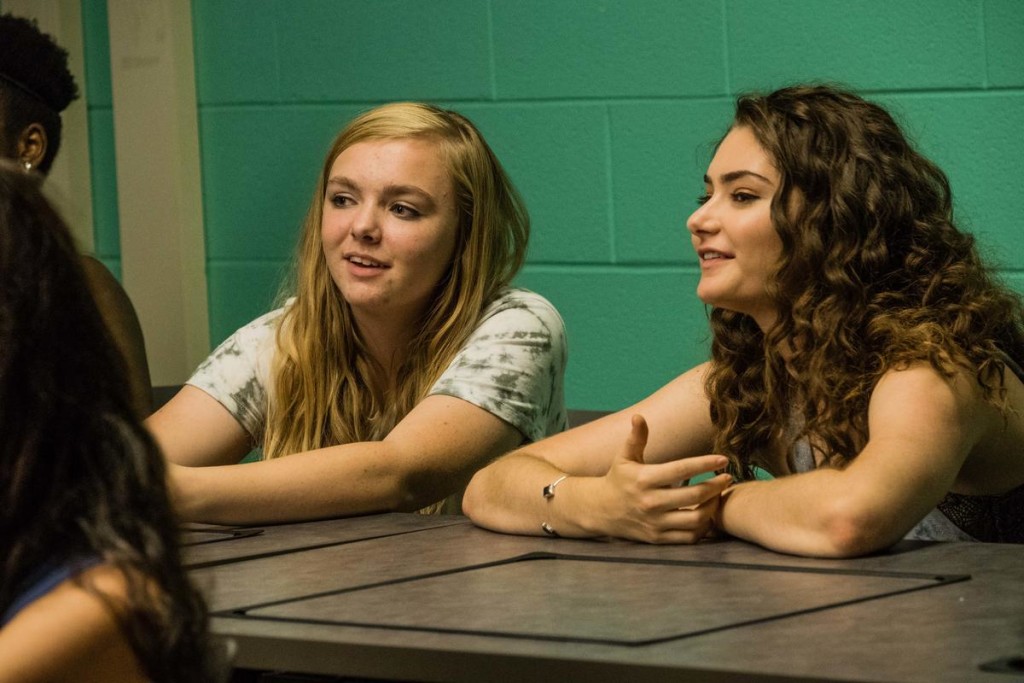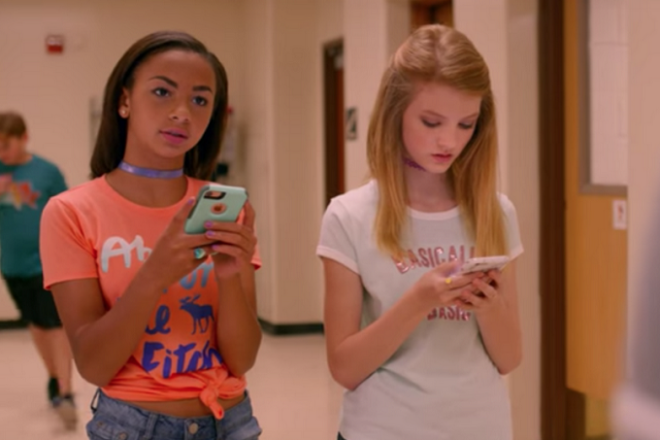Genre: Contained Thriller
Premise: When a malicious cyber attack against U.S. Space Command forces the President-Elect and the outgoing President into the Situation Room hours before the Inauguration ceremony, the rival Presidents and their National Security teams work with and against each other to determine who is responsible for the attack and how to respond before it’s too late.
About: Writer Patrick McConville originally worked as an assistant at CAA in TV talent. He would go on to work as an executive for director Marcus Nispel. He’s been toiling away at screenwriting ever since, Inauguration Day being the culmination of a six-year journey from his last well-received script, Tom Sawyer’s Island. Inauguration Day finished with 8 votes on last year’s Hit List, a yearly list of the best spec scripts.
Writer: Patrick McConville
Details: 116 pages
It sucks that these high-concept specs have been relegated to low-vote status on the Hit List (not even making the Black List anymore). There was a time where a big concept like this would’ve garnered a million dollar sale. However, when you look closer, you realize this isn’t your average high concept. It’s actually a genius update. McConville takes a giant idea and relegates it to a single location, pasting what used to be a Dean Devlin/Roland Emmerich special into the Contained Thriller genre. That’s how you position high concept in today’s market. Let’s see how the script turned out.
46 year old President Juliet Garcia is spending her last day in the Oval Office with her children, preparing to leave behind what many consider to be an embarrassing tenure, highlighted by a massive terrorist attack in Wrigleyville, Chicago, during a Cubs game. Not only did the terrorists kill over 2000 people, they were able to escape to Syria, where Russia has helped shield them from American justice.
Meanwhile, 57 year old president-elect Owen Everett is getting ready for his inauguration. Ironically, it was Everett, the former Speaker of the House, who prevented Garcia from making an executive order to invade Syria to grab the terrorists. The non-confrontational Everett not only won that game, but won the match since the event pegged Garcia as a president who couldn’t get the job done.
In short, there’s history between these two.
An hour and a half before Everett’s sworn in, a U.S. satellite goes down. We quickly learn this satellite is part of an array of satellites that run the U.S.’s GPS system. When a second satellite goes black, our presidents realize this is a matter of national security, and head to the Situation Room to figure out what’s going on. The operating theory is that Russia infected the U.S. satellite array with a virus, taking them down one by one, so that our military GPS will be eliminated. The question then becomes, what do they plan to do next?
Garcia sees this as an opportunity to make up for the Wrigleyville disaster, advocating for a pre-emptive military strike on the Russians. Everett, meanwhile, wants to take some time and figure out what’s going on here. The two are buttressed by their teams, who stand loyally in each contender’s corner, and a 90 minute battle of wills ensues that will not only determine the fate of this problem, but the fate of the world.
I’m not sure I was ready for what McConville wanted to do here.
I was expecting (and wanted) the beach read version of this premise. Instead I got what might happen if Walter Isaacson wrote a screenplay. There was a TON of information to get through. A lot of characters. A lot of policy and politics and below-the-water chunks of an iceberg. This was researched and then re-researched so that everybody is representative of their real-life titles. Some hardcore burden of investment is required to even BEGIN to understand what’s going on. And that was easily my biggest issue with the script.
Which sucks because this is a great idea. Put the president and the president-elect in a room together where they need to solve an impending catastrophe. It’s one of those, “Why didn’t I think of that?” ideas. But, oh boy, do we have to go through a lot to get to the fun.
For starters, we have a ton of voice over from news anchors giving us backstory on the two presidents. We’re then meeting an endless cast of characters. There’s all of Garcia’s staff and then there’s all of Everett’s staff. I don’t think enough writers realize that if you cram 8-10 character introductions – especially big important people like the characters in this script – into a 5 page section, you’ll be lucky if the reader remembers three of those characters.
I don’t know why it’s so hard for writers to understand that readers aren’t computers. We don’t automatically remember everything you throw at us. Often times it’s the opposite. We’re being given a ton of information early on, and we have to parse out what we think is important and unimportant. Inevitably we turn out to be wrong, which means lots of characters and story points become casualties, never to be entirely remembered or understood.
This is why I always say to screenwriters: Only introduce characters if you have to. If someone’s not going to play that big of a part in the story, see if you can get rid of them or combine them with another character. You’re not only consolidating your story, but you’re making it easier for your reader to keep up.
It’s not surprising that this factors into my next biggest complaint in the script – which is that I wanted this to be Garcia vs. Everett. I wanted them arguing. I wanted them having to figure things out together. When there were problems, I wanted the problems to be between them. Instead, there’s ALLLLL these characters shouldering the weight of the story, with Garcia and Everett popping in whenever they’re needed.
It’s only once we get past the mid-point that our presidents really take center stage and dominate the conversation. Not surprisingly, that’s when the script really picked up. It’s crazy. I was convinced this was a “wasn’t for me” through the first 70 pages. But once it became Garcia vs. Everett, I was pulled back in. Which begs the question, why wasn’t it always about them? The answer is probably that McConville wanted to keep this authentic. If this situation were to really go down, all these extra players he included would probably be there. And I can respect that. I preach about authenticity all the time. I just think he went a bit overboard. In screenwriting, you want to avoid anything that takes precedence over the coolest thing about your script. And the coolest thing about this script was always Garcia vs. Everett.
To McConville’s credit, the script came together in the end. While at first I was ho-hum about a GPS terror plot, I loved how the story evolved into this rising battle with Russia, led by two competing philosophies – Garcia representing the shoot-first-ask-questions-later side, and Everett representing the let’s-think-this-through side, even if that got him labeled a “pussy” by everyone in the room.
I only wish there was more of that president-vs-president stuff in the beginning of the script. That’s the sandbox that sold me so that’s the sandbox I wanted to play in!
[ ] What the hell did I just read?
[x] wasn’t for me
[ ] worth the read
[ ] impressive
[ ] genius
What I learned: Unless you’re writing a script that contains a handful of characters, you can probably benefit from getting rid of 20% of the characters in your screenplay. Remember that less characters means it’s easier for the reader to keep up and you get to spend more time developing the characters that matter.
What I learned 2: Dressed-Up Contained Thrillers. Everyone is trying to come up with contained thriller concepts because they’re cheap to make and easy to market. But there are two levels of Contained Thrillers. The first is the standard type. This is what most people go with because it costs nothing. I’m talking about stories that take place in a basement, a diner, a tunnel, a coffin, a house. Inauguration Day is a level up from that, what’s known as a “dressed up” contained thriller. These actually require a set to be built. Yes, these films will cost more money than your standard contained thrillers, but they’ll feel bigger, allowing them to compete with much bigger films. If you’re trying to make a movie yourself, go with a standard contained thriller. If you’re trying to sell a script, a dressed-up contained thriller is a better option.
Genre: Comedy
Premise: A morally bankrupt woman kidnaps her left-at-the-alter brother to the Amalfi Coast, posing as his wife to secure the $250,000 Honeymoon Prize he won.
About: This one finished in the middle of the pack on the 2016 Black List. It was written by Zoe McCarthy, who I’ve reviewed before. Her script, “Cut and Run,” followed a female urologist and a retired hooker as they took down a notorious sex trafficker in Miami. She also has a project in development called “Bitches on a Boat,” which covers similar territory to today’s script. It’s about a female sports agent who’s dumped by her fiance minutes after she embarks on a cruise ship bachelorette party. McCarthy is still looking for that lucrative “written by” credit, a process that shouldn’t take much longer if she keeps displaying this level of talent.
Writer: Zoe McCarthy
Details: 110 pages
I think I’ve reviewed every script rated higher than this one on the 2016 Black List. So what’s taken me so long to read Hart You? To be honest, the logline made me feel icky. I was skeptical that an incest-joke could work for 110 pages. I wasn’t even sure the joke could work for a scene. Do I really want to read an entire script where a brother and sister have to pretend to have the hots for one another? Is that funny? Let’s find out.
32 year old Naomi is what you might call a lost cause. She has no significant other. No job. She spends most of her days getting high and stalking her hot musician ex-boyfriend on Instagram. Her younger brother by two years, Brandon, conversely, has a picture-perfect life. He’s a lawyer and is about to get married to Jessica, the kind of stunner he couldn’t get in high school.
One thing of note about these siblings: Brandon HAAAAAAAATES Noami. She’s done nothing but make his life miserable (starting all the way back in high school, when she slept with his prom date). Brandon tells Naomi there is no way in hell she’s coming to the wedding. Of course, that night, Naomi ignores her brother and visits Jessica, who confides in Naomi that she never loved Brandon.
When Jessica dumps Brandon at the alter the next day, Brandon is convinced this is all Naomi’s fault. While he goes off to drown his sorrows, Naomi finds out that Brandon won a dating site prize that picks the perfect newly married couple and flies them to the Amalfi Coast where their trip will be documented and they’ll collect 250,000 dollars. Broke-ass Naomi grabs an obliterated Brandon and has a photographer take a bunch of pictures of them as “newly married,” then sneaks a passed out Brandon onto the plane the next morning.
When Brandon wakes up at the Honeymoon location, he freaks out, potentially ruining everything. That is until he meets the gorgeous Rachel, the prize’s organizer who will be documenting their trip. After Naomi reminds Brandon that he’s bankrupt because of how much money he spent trying to get Jessica to love him, Brandon reluctantly agrees to go along with the ruse.
But not even he could’ve predicted what they’d have to do. The website’s purpose is to show the power of love. So Brandon and Naomi will need to have everything documented, from their kisses – blech! – to “intimate” couples massages. We know Naomi can keep up the ruse. But can Brandon, who hates his sister more every minute? Survey says: Not likely. But in this anti rom-com? You never know.
A tell-tale sign that I’m not going to like a script is when a line of dialogue includes references I’ve never heard of. So when a photographer in Hart You barks out the line, “Gimme more Travis Scott, less Brendan Dassey,” I figured I was in for a long ride.
But here’s the thing about McCarthy. She’s one of the rare screenwriters you can read even if you’re not into the story. If I worked at a production company and this script came in, I’d say, “I don’t love this script. But this is definitely a writer we want to keep an eye on.” What makes me say that? Well, take a look at the introduction of Noami’s apartment. As far as conveying who a character is, I’d put this description in my top 5 of the year…
Naomi’s dingy abode hosts a floor-to-ceiling stack of career instructional/reference books, The Easy Way series, with subjects ranging from fortune cookie writing to sea lion taming to dreamcatcher making, etc., a broken lava lamp, a fish-less fish tank, a chunky laptop, and pot paraphernalia. Three posters bring the room together: El Chapo, Janis, and Oprah.
There aren’t a lot of writers who can creatively convey a character like that, and if you can stand out from the pack anywhere in writing, readers are going to respond to you. That creativity extended to the dialogue as well. When Naomi locks herself in the bathroom after a fight, a worried Brandon doesn’t say what the typical screenwriter would write – something like, “I’m not going to fall for your shenanigans, Naomi!” He says, “Naomi, I refuse to drown in your manipulation quicksand.” Way more creative.
Props also go out to McCarthy for overcoming the Herculean task of navigating an impossible-to-believe premise. Granted, she chose the premise in the first place. So explaining away the plot holes was a disaster of her own making. But she’s so funny that she’s able to hide a lot of these issues with humor.
For example, how do you get a brother on a plane who hates your guts? She gets him wasted and high the night before, so he’s incapacitated at the airport. “Ma’am, could you please wake your companion before boarding?” the airline employee asks, looking at Brandon, drugged in a wheelchair. “My husband’s um… How do I put this… He’s a Stephen Hawking situation. This is as awake as he gets… We’re actually on the way to Europe to see a specialist.”
Unfortunately, some explanations were a bridge too far. With social media these days, how do you fake identities? How did not one person at the wedding take a picture of Brandon with the real Jessica and put it on their Facebook page? The answers to these questions were a) Naomi conveniently doesn’t use social media. And b) Noami drugs the punch at the wedding so that everyone’s too high to take pictures.
It’s a warning sign to anyone with a mistaken identity concept. It’s very hard to pull these off in the social media age. I once had an idea about a college freshman who has the same name as the big quarterback recruit for UCLA, who, incidentally, doesn’t show up. The freshman is then assumed to be the recruit, and when he sees all the perks that come with life as a star QB, goes along with it, despite the fact that he’s never played football in his life.
The more social media blew up, the more changes I had to make to the idea. First the real QB was from a small school on the East Coast. By the last draft, I had him as a QB in a tiny town in Alaska, since that was the only place I could place him where it would be believable that nobody would be able to find out our imposter freshman wasn’t the real QB. By that point, I realized it was pointless. When you have to jump through that many hoops to sell your premise, your premise is probably faulty.
Despite all this, McCarthy is talented enough and funny enough and a good enough writer, that she keeps the script entertaining. It’s the definition of a writer with a “strong voice,” and why the industry will pay you even if your spec scripts haven’t been produced. It’s definitely a good script to read if you’re an aspiring comedy screenwriter.
[ ] What the hell did I just read?
[ ] wasn’t for me
[x] worth the read
[ ] impressive
[ ] genius
What I learned: While I don’t think traditional rom-coms work anymore (stuff like Pretty Woman and Notting Hill), I do think “rom-coms with an edge” work, like this one. Stuff where you’re not being all ooey-gooey, but rather rock-n-rolly. Morally bankrupt characters. Morally bankrupt premises. Stuff with more edge to them. The industry still responds to this, especially if it has a strong female lead.
Eighth Grade isn’t only one of the best films of the year. It’s got some kickass screenwriting lessons hidden inside it. Today, I share them with you.
Genre: Drama
Premise: A chronically introverted eighth-grader attempts to navigate the end of the year by finally breaking out of her shell.
About: Bo Burnham became an Youtube celebrity for the 13 year old demographic when he was just a teenager. He became such a sensation, Judd Apatow hired him to write a teenage musical when he was just 18 (Burnham admits that Apatow made a huge mistake – he had no idea how to write a movie at the time). Now 27, Burnham has come out with his first film. Apropos to his perceived demographic, it’s about a 13 year old girl. The raw real energy of the film shocked the festival circuit, making Burnham a wanted man by every studio in town. If its 99% Rotten Tomatoes score hasn’t convinced you to watch it, maybe this review will.
Writer: Bo Burnham
Details: 90 minutes
I’ve been keeping an eye on Eighth Grade for awhile now. I’d heard amazing things about it, yet I wasn’t convinced the subject matter would be to my liking. In the end, I decided to give it a shot for no other reason than to see if Burnham wrote a screenplay for the movie. I’m convinced these artsy writer-director types don’t care about the script. And I always like to call them out for it. Boy was I barking up the wrong tree this time.
If you haven’t seen Eighth Grade, it follows Kayla, a quiet girl who lives with her father and spends the majority of her time on Instagram and Youtube, where she makes videos of herself giving advice. The irony is that Kayla doesn’t have any experience in the topics she speaks about. The videos are used more as a self-motivational tool. For example, she’ll make a video about “How to be Confident,” then attempt to use those tips the next day at school.
The plot for Eighth Grade is non-existent. There’s no overarching goal. The closest thing we have to a narrative is Kayla getting invited to a popular girl’s pool party. “So my mom said I had to invite you to my party so this is me doing that,” the girl texts Kayla. That and Kayla pining for the hottest boy in class, Aiden, who’s said to have broken up with his previous girlfriend because she wouldn’t send him naked pictures, an opportunity Kayla believes she can exploit.
Eventually, Kayla becomes friends with Olivia, a genuinely kind girl in high school who Kayla meets during the high school “shadow” program. Olivia invites Kayla out with her friends where Kayla tries desperately to shed her quiet persona. She fails, then finds herself alone in the car with an aggressive boy on the ride home, who she escapes, but not without some emotional damage. Kayla manages to toughen up before graduation, finally opening herself up to a new friendship she didn’t even realize was available.
Despite this being a director-driven movie, there’s a lot more screenwriting here than you’d think. Pay attention all you young directors who think movies are pretty shots and cool music. You’re gonna learn sumthin.
For starters, while there isn’t a goal, there is a timeframe. This is a technique I’ve endorsed in the past. Not every story has a goal-driven narrative. The problem that occurs when you don’t have a goal is that your plot starts to wander. You can alleviate this by adding a timeframe, preferably one that ends soon. Eighth Grade starts with a week left til graduation. Since we now know when the story is ending, we don’t care so much that it lacks a goal.
The script also establishes a clear flaw right away. Kayla is quiet. She hates being quiet. She desperately wishes she were loud and talkative like all the cool people in school. How aggressively does Burnham push this flaw? Kayla is awarded “Most Quiet” for the yearbook. I bring this up because a lot of writers think that when you’re writing character driven scripts, you want to be super-subtle about everything. This proves that the opposite is true. Kayla’s flaw is front and center, and it dominates her journey throughout the movie.
But where Burnham really separates himself is through Kayla’s Youtube videos. Again, most indie filmmakers would be overly subtle about who Kayla is, attempting to depict her through her actions alone. While this can be done, it’s extremely difficult. Sooner or later, we need some insight into the character, and we can only get through characters speaking.
So what Burnham did was genius. He explored Kayla’s thoughts through her videos. And not in an on-the-nose way where she’d say, “Today was terrible. Nobody likes me. I’m sick of eighth grade.” No. Instead, Kayla uses her channel to instruct people on how to be strong or how to be confident or how to overcome fear. Since Kayla isn’t good at any of these things herself, we realize that these videos are representations of who she wants to be.
I contrast this with one of the worst indie high school movies I’ve ever seen, Gus Van Sant’s “Elephant,” which does all the things I tell you not to do. The characters don’t speak. We only get to know them through their actions. Everything is extremely subtle. We get zero insight into the characters, and therefore don’t care about them. Kayla’s videos are the key to making her not only memorable, but arguably the most memorable character of the year.
There were a lot of little decisions I loved as well. The second act revolves around a pool party that Kayla gets invited to by the mother of a girl who doesn’t like Kayla. In your traditional studio high school movie, what happens here is that Kayla’s father forces her to go to the party even though she doesn’t want to. But Burnham has Kayla decide to go on her own. The reason this is such a great choice is because it makes your hero ACTIVE. Your hero is deciding her fate. Audiences always prefer this over a character’s fate being chosen for them.
Then there were non-traditional ways of dealing with traditional moments. Like when Kayla finally confronts the cool girl over the fact that Kayla’s always nice to her and she’s never nice back. The scene is an odd one, with Kayla never once looking the girl in the face while she yells at her. Nor does Kayla have a slam-dunk final blow that you’d see in your typical studio movie. Instead, the attack ends awkwardly, with Kayla stumbling away and us never seeing how the girl reacted. It was odd but at the same time way more real than what we’re used to seeing.
I think this film works not only because Burnham did an amazing job directing (the score, in particular, was awesome) and the actress who played Kayla was great. But also because the themes are universal. If you’ve ever wondered how you make a movie that stands the test of time. This is how. You key in on universal themes that everyone feels, not just in 8th grade, but throughout life – loneliness, courage, wanting to break out of one’s self-imposed shell. That was what Kayla did and that’s what helped make this one of the best movies of the year.
[ ] What the hell did I just watch?
[ ] wasn’t for me
[ ] worth the price of admission
[x] impressive
[ ] genius
What I learned: Kayla is a reminder of one of the most powerful character types you can write – someone who’s in a shitty situation, but who keeps their chin up and never stops fighting. There were so many moments in this movie where Kayla could’ve thrown up her hands and given up. The girl literally had zero friends. Every day at school was a struggle. But she always got up the next day, made a new positive video, and tried to make her life better. It’s literally impossible to dislike a person like this. Keep that in mind when you’re writing your next hero.
Do not be sad! True, we have to wait an entire extra week for Halloween Amateur Offerings. But in the meantime, we have an entire thread to update the world on your 2018 screenwriting progress. How many scripts have you written? Or how much of a single script have you written? Are you on schedule to meet your 2018 goals? If not, why not? Are you making excuses? Are you lazy? Are you starting stuff then getting bored? Did you hit a bout of writer’s block and never recover? I find that by admitting your problem, even if it’s just typing it “out loud” in a forum, you’re more likely to overcome the issue and move forward.
Now is a good time to remind everyone that every great piece of work was, at one point, doubted by its author. There’s going to be a struggle with everything you write. Accept that and be okay with it. What you DON’T want is to give up, is to let a day of not writing turn into a week, or a week turn into a month, or worse a month turn into half a year. Because I’ve seen it before. It’s happened to me. Incorporate some harsh deadlines and hold yourself accountable. And for the love of all that is holy, stop wasting so much time on the internet. “I don’t have time to write,” doesn’t work as an excuse when the follow-up question is, “How much time did you spend on the internet today?” and you answer, “4 hours.”
For those of you wondering what Halloween Amateur Offerings is, it’s a mini-contest where FIVE Horror scripts are posted on the site and you, the readers, vote on which one is the best. I then review the winning script on the site the following Friday. If you want to be a part of Halloween Amateur Offerings, send a pdf of your Horror (or “Horror Adjacent”) script to carsonreeves3@gmail.com. Include the title, genre, logline, and why you think your script should get a shot. Only five scripts will be chosen to compete. So bring your best stuff!
As I like to remind all the screenwriters out there… always keep an eye on the box office. Hollywood spends so much money on productions these days that a single unexpected triumph or a single earth-shattering failure can create a tectonic shift in the business. Look no further than Solo. Many considered Star Wars the most bullet-proof brand of them all. Solo barely clearing 200 million domestically resulted in Disney pulling their “2 Star Wars Movies a Year” plan and icing all Star Wars movies after Episode 9. A single bomb could mark that current script you’re working on irrelevant. Or an unexpected hit could mean that idea you’ve been sitting on is all of a sudden a hot commodity. So always keep up to date. Here are 10 2018 overperformers and underperformers and the reasons for their box office results.
OVERPERFORMERS
The Meg ($142 mil dom, $525 mil worldwide) – Sharks, sharks, sharks, sharks, and sharks. Probably the most bullet-proof subject matter there is behind horror. When’s the last time you heard of a shark movie doing bad? To show you how solid this genre is, look no further than 47 Meters Down. That movie was supposed to go direct-to-video. Instead they released it in theaters and it made 44 million dollars. Wow.
Crazy Rich Asians ($169 mil dom, $226 mil worldwide) – Crazy Rich Asians brought back an old-school approach to movie-making – Introduce us to a unique culture and tell us a story within that culture that is both entertaining and educational. Something that’s oft-forgotten is that audiences want unique experiences. If you can introduce them to a fresh world that they haven’t seen before, and promise them they’ll be entertained in the process? They’ll show up.
A Quiet Place ($188 mil dom, 334 mil worldwide) – I don’t care what anybody here says. This was a genius concept. I knew it the second I read the script. I knew right away it was going to make a ton of money. You can either keep complaining or seek to understand why this did well. Because these are some of the last concepts a screenwriter can come up with and make a big spec sale with. A family that operates in a post-apocalyptic monster-ridden world where you can’t make a sound. Boom. That’s a dream concept producers everywhere would die to find the next version of.
Hereditary ($44 mil dom, $79 mil worldwide) – Hereditary proves the value of the horror brand. This is about as non-traditional as a horror film gets. It’s dark and weird and unsettling. In other words, it’s not “The Nun.” But if you can come up with a great image or a great trailer that promises scares? People are going to show up. Which is why if you’re a screenwriter who likes horror even a LITTLE bit, you should be writing in it. While the rest of your screenwriting friends are debating what’s more important, theme or a character’s fatal flaw, you’ll be deciding whether to buy a house next to Leonardo DiCaprio or Will Smith.
Searching ($25 mil dom, $65 mil worldwide) – Searching is a film that begs the question to every screenwriter trying to break in: “What are you waiting for?” People are making movies where they don’t have to leave their bedroom! Why are you complaining that nobody will read your script when there are clearly opportunities to write and create movies for next to nothing? Do you have any idea how hard making movies used to be? You used to need to buy film. FILM! And it was expensive. Now you can use your darn phone. Stop the excuses!
UNDERPERFORMERS
Skyscraper ($67 mil dom, $303 mil worldwide) – If “Crazy Rich Asians” is the embodiment of giving us something new, Skyscraper is the embodiment of giving us everything old. I mean, these people do realize they’re remaking Die Hard, right? This reminds me of the crap studios used to pull before social media could destroy word-of-mouth in less than 12 hours, where they’d vomit out an unoriginal screenplay then try to hide it behind a big star. Audiences aren’t fooled by that anymore. Studios? You have to do better.
Tag ($54 mil dom, $77 mil worldwide)– Imagine coming up with an idea that had absolutely no stakes at all (someone getting tagged is literally the stakes of the movie) and then asking people to pay to see your movie. Slap onto that “tweener” status (when a movie is stuck between genres – this one both a comedy and a drama) and you’ve got a disaster in the making. As long as we’re here, let’s add the trifecta. The movie ends at a wedding. A wedding! The ONE THING you have going for you here is that your idea’s a little bit unique. So instead of embracing that you give us the most cliche ending scenario of them all? They should’ve gone full comedy here and figured out a plot that had some actual stakes. Also, casting Jeremy Renner in anything that involves comedy was the final nail in the coffin.
The Happytime Murders ($20 mil dom, $25 mil worldwide) – Here’s an odd one. This movie is actually giving us something we desire – a fresh idea. Yet it bombed. And not just bombed. People gleefully celebrated its demise. You realize you’re the same people who complain that Hollywood never tries anything new, right? “But, but, but…” you say, “we DO want something new. We just want the good kind of new.” You can’t have it both ways. You have to celebrate when people take chances, even if they fail. The reason this movie failed is a subtle one, and one of the hardest to calculate as a screenwriter – tone. I like the idea of puppets acting bad. But they pushed it too far. I mean, at one point, they have a puppet ejaculating for five minutes onscreen. Somewhere around 15 seconds is when you know you’ve gone too far. If they would’ve pulled the humor back and made it a little less risky, I could see this being a success.
Tomb Raider ($57 mil dom, $273 mil worldwide) – There wasn’t a single person who came out of Tomb Raider and said, “Man, I’ve never seen that scene before!” Tomb Raider suffered from “Save the Cat” syndrome. This is when you follow the formula so closely, there isn’t a single surprising or fresh idea in your screenplay. Yes, you could take your script in front of a USC screenwriting panel and point out how every single component of the script is perfect. But screenplays can’t just be technically perfect. They have to be imaginative, creative, and unexpected. You have to make bold choices every once in awhile so that your story feels original. I didn’t like Hereditary (spoiler), but the choice to kill off the sister halfway through the script helped separate that film from everything else in 2018.
Fahrenheit 11/9 ($6 mil dom, $6 mil worldwide) – A documentary? Carson, have you gone mad? What does the box office of a documentary film have to do with screenwriting? I’m actually including this movie for a specific reason, one that director Michael Moore is so out of touch with, he wasted millions of dollars and a year of his life for. What’s the lesson? Don’t write anything that people can get for free. Back in 2002, we didn’t have hundreds of online political outlets to spout off about 9/11. Which is why that earlier documentary made so much money. It was one of the few places you could go to get a thoughtful detailed look at how 9/11 went down. But now, the second anything happens in the news, there are hundreds of Youtube channels breaking it down WITHIN HOURS. If we can get it for free without having to put our clothes on, why would we pay $15 bucks to go see it in the theater? Let this lesson extend to the concepts you choose to write. Give us things we can’t get anywhere else but the movies. What are examples of documentaries that fit this bill? Tickled and Three Identical Strangers.








